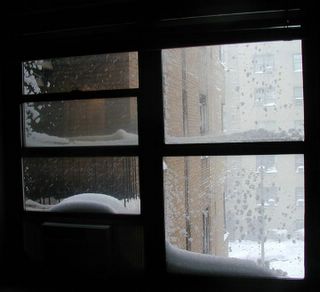Ted Baehr, Christian Film & Television Commission
"I realised that what he was up to was propaganda in the cause of the religion he believed in."
Children's author Philip Pullman on The Chronicles of Narnia
*****
Propaganda n. The systematic propagation of a doctrine or cause or of information reflecting the views and interests of those advocating such a doctrine or cause; material disseminated by the advocates or opponents of a doctrine or cause.
*****
 Propaganda is a neutral word. Propaganda is merely a message meant to influence beliefs or opinions; in Spanish it simply means "advertising." In modern American culture, however, "propaganda" means, at best, an unbalanced exaggeration or, at worst, manipulation through the deliberate portrayal of falsehood as truth.
Propaganda is a neutral word. Propaganda is merely a message meant to influence beliefs or opinions; in Spanish it simply means "advertising." In modern American culture, however, "propaganda" means, at best, an unbalanced exaggeration or, at worst, manipulation through the deliberate portrayal of falsehood as truth.If you accept that "propaganda" is simply advocacy for a certain point of view -- which you must, since that's what it means -- then really all art is propaganda.
The idea that you can criticize art as "propaganda" and somehow be taken seriously must stem from the belief that artists are not allowed to have a point of view, or that they should not communicate it, or that as members of the "cultural elite" their views are out of touch and irrelevant, or, at least, that they should only communicate things which are pleasant and non-controversial. But as human beings never agree on anything, the idea of "non-controversial art" is a non-starter. Back when the first Neanderthal painted a mammoth on the wall of a cave, you can be sure two other cavemen got in an argument over whether it was any good.
The question is not really whether Brokeback Mountain or The Lion, the Witch and the Wardrobe can be said to promote certain ideas, but whether they promote falsehoods.

"The real object is to demonstrate that homosexuality is normal, " wrote R. Cort Kirkwood for The New American in his lengthy and emphatic essay Homos on the Range. Mr. Kirkwood did not see Brokeback Mountain: "You needn't lift the lid on a garbage can, after all, to know what's inside." And what's in the trash, according to Kirkwood? "Homosexuals aren't like everyone else; and not just because they can't tell the difference between an entrance and an exit: they also expect society to accept, tolerate and legalize their sin."
Peter Bronson, writing in the Cincinnati Enquirer, agrees: "It dishonestly portrays selfish betrayal of family and marriage as a brave struggle against repression, as if homosexual love is more noble than traditional marriage."
Art, however, is not used to “settle” a discussion, but rather to provoke it. Brokeback Mountain no more proves homosexuality is normal than The Ten Commandments proves God parted the Red Sea…
…which brings me to The Lion, the Witch and the Wardrobe. The propaganda controversy swirling around this film is not so much over its Christian content, but rather its target audience: children. The concern is whether children, too young and too naïve to be able to detect artistic bias, are being presented with ideas they don’t know how to defend themselves against. Are they being indoctrinated against their will?
 Please forgive the lack of juicy quotes attacking C.S. Lewis’ agenda. It turns out when you do a Google search for “Narnia” and “propaganda,” instead of a lot of hot-tempered liberal screeds about the evils of religion, you get academic essays rebutting Christian assertions that the film is good propaganda by saying things like, “C.S. Lewis warned us not to read too much Christian theology into the stories of Narnia.” Liberals, it turns out, need to work on their inflammatory rhetoric.
Please forgive the lack of juicy quotes attacking C.S. Lewis’ agenda. It turns out when you do a Google search for “Narnia” and “propaganda,” instead of a lot of hot-tempered liberal screeds about the evils of religion, you get academic essays rebutting Christian assertions that the film is good propaganda by saying things like, “C.S. Lewis warned us not to read too much Christian theology into the stories of Narnia.” Liberals, it turns out, need to work on their inflammatory rhetoric.“Much of the controversy generated before the film’s release concerning its potential overt Christian propaganda turned out to be hot, empty gassing,” wrote one reviewer, adding, “[it’s not] propaganda except in the perception of the religious or secular fundamentalist. The Lion, the Witch and the Wardrobe brought me much comfort and joy as a Muslim child growing up in Wales." [emphasis mine] Yup, that’s right, here’s a Muslim movie critic defending Narnia on IslamOnline.
Art can certainly be moving, but its critics in this instance grant it more power than it has. Taking a child to see The Lion, the Witch and the Wardrobe no more plants a covert time bomb in their minds destined to turn them into Jerry Falwell than Brokeback Mountain will make them queer. Though he was referring to the latter film, Andrew Sullivan’s statement applies equally to the value of both movies: “That is what great art does: it reveals the truth we are too scared to see and the future we already, beneath all our denial, understand.”





























